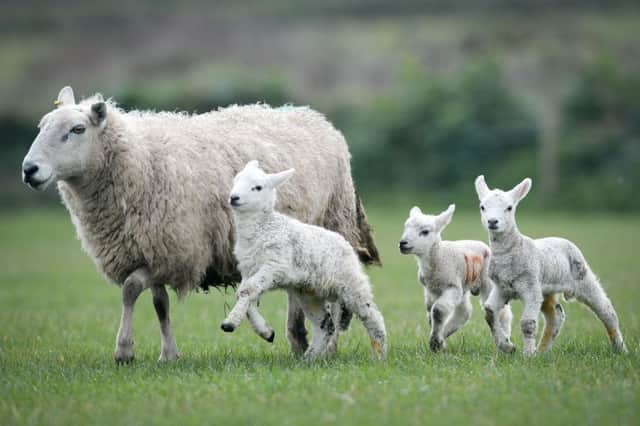Cases of disease affecting newborn livestock rises


Livestock producers are being urged to submit lambs that are suspected to have contracted the Schmallenberg virus (SBV) for post-mortem examination so that the extent of the outbreak can be better understood.
Lambing flocks across the country have experienced higher than normal losses from deformed lambs with the disease so far confirmed in the South West, South East, Wales and the North East. Early calving herds have also experienced calves affected with congenital defects.
Advertisement
Hide AdAdvertisement
Hide AdSBV is transmitted by midges which infect sheep, cattle and goats when they bite. Infected cattle can demonstrate symptoms of acute disease; however, if infected in the earlier stages of pregnancy, lambs and calves can be born with severe malformations that can make delivery very difficult and damaging.
The disease can suppress milk production and growth rates. Any infection found now will have taken place last year and there is nothing that can be done to alleviate current issues.
An industry statement said: “We’ve already heard of a number of cases and mainstream lambing and calving is only just starting. However, the Animal and Plant Health Agency hasn’t received many samples so the true extent of the problem is not understood.
“At present there is no vaccine available and it is already too late to vaccinate sheep that are due to lamb this spring or cows due to calve. However, there will be vaccine available this year and further details on when will be confirmed soon.”
Advertisement
Hide AdAdvertisement
Hide AdDr Simon Carpenter, head of entomology, The Pirbright Institute, said: “SBV is transmitted between ruminants by midges at a far higher rate than bluetongue virus and so spreads more quickly through farms. This might also mean that it can be transmitted effectively at lower temperatures and so extend the season during which the virus is a threat.”
Schmallenberg virus was first identified in 2011 and the disease has spread throughout Europe.
The first case diagnosed in Britain in recent months was in a calf in Cornwall in October 2016. Since then APHA veterinary investigation centres, including one at Thirsk, has reported stillbirths and foetal deformity in lambs.
There were a total of nine confirmed cases of SBV in lambs in North Yorkshire during January and February this year, and 77 nationally during the same period.
Only three premises have had confirmed cases in calves in that time, including one in North Yorkshire.